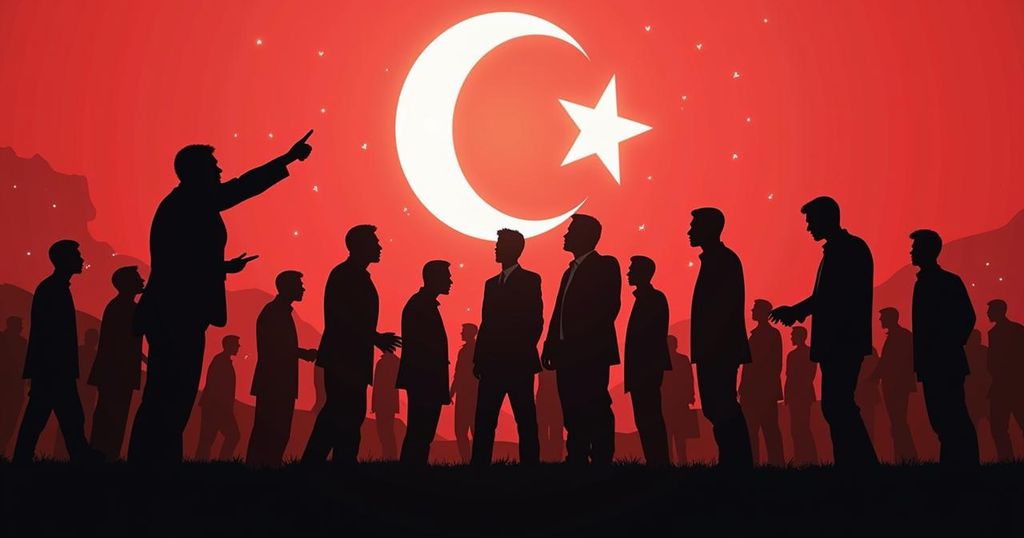Tunisia’s Presidential Election: A Question of Legitimacy Amidst Political Silence

Tunisian President Kais Saied is poised for re-election in an environment marked by limited opposition due to the imprisonment of his rivals and a lack of credible challengers. With only three candidates approved for the election, critics call the process a sham amid widespread political apathy and ongoing economic challenges, particularly high unemployment. The election reveals deep divisions within Tunisia’s political landscape, reflecting on Saied’s presidency and the broader implications for the country’s democratic aspirations since the Arab Spring.
Tunisian President Kais Saied is set to face minimal opposition in the upcoming presidential election, as many of his key adversaries have been either incarcerated or excluded from the ballot. Voters in Tunisia participated in this election, although widespread skepticism surrounds the likelihood of a new president emerging this time. Five years prior, President Saied ascended to power amid an anti-establishment sentiment, securing his first term by promising significant political change. This election marks the third opportunity for citizens to express their political preferences since the uprising in 2011 that resulted in the ousting of President Zine El Abidine Ben Ali, a pivotal moment in the Arab Spring that inspired similar movements across the region. Historically, Tunisia was celebrated as a beacon of democratic success in the aftermath of the Arab Spring. However, the political landscape has since deteriorated, characterized by economic struggles and increased political strife. President Saied, previously a political outsider at age 61, participated in the 2019 elections with a promise to empower youth and local governance amid Tunisia’s economic challenges that have persisted post-COVID-19. Despite Saied’s promises, the country faces significant issues, including an unemployment rate hovering around 16%. Negotiations for a crucial International Monetary Fund (IMF) bailout remain stalled due to governmental reluctance to comply with the required conditions, which could further alienate the populace. Moreover, Tunisia’s socio-political climate has been marked by a controversial crackdown on dissent, with many political figures imprisoned or barred from participating in the elections. Only three candidates successfully secured approval to run: President Saied, Zouhair Maghzaoui, and Ayachi Zammel. Maghzaoui, known for opposing Saied’s economic initiatives, carries substantial baggage, having supported the controversial constitutional amendments previously enacted by Saied. Zammel, despite his outsider status, faces legal challenges related to electoral misconduct. With the discouraging backdrop of dwindling voter turnout in recent elections, many notable opposition figures are conspicuously absent from the race, including Rached Ghannouchi, a prominent critic of Saied’s regime who has been imprisoned for his dissent. The elections reflect a significant shift away from Tunisia’s initial democratic aspirations, deepening the perception of a faltering democratic process and raising concerns about the legitimacy of the electoral outcome in light of widespread opposition calls for a boycott. The urgent challenges facing the Tunisian economy and civil society will firmly shape the nation’s political trajectory in this critical chapter of its history.
The political situation in Tunisia has evolved considerably since the 2011 uprising which resulted in the ousting of long-standing dictator Zine El Abidine Ben Ali. Initially, Tunisia was hailed as a success story of the Arab Spring, establishing a democratic framework and winning the Nobel Peace Prize for its civil society’s role in navigating political crises. However, the economic malaise, marked by high unemployment and political instability, culminated in the rise of Kais Saied as a president promising reform. Since assuming office, Saied has taken controversial steps to consolidate power, such as suspending parliament and rewriting the constitution, which have raised alarms among pro-democracy advocates.
The upcoming presidential election in Tunisia presents a significant turning point amid a backdrop of political discontent and economic distress. With a slim field of candidates and many critical voices silenced, the 2023 election will illuminate the depth of support for President Saied’s administration and the future of Tunisian democracy. As the momentum towards Saied’s governance solidifies, the legitimacy of the electoral process and the implications for the nation’s political direction remain paramount concerns for both national and international observers.
Original Source: www.euronews.com







